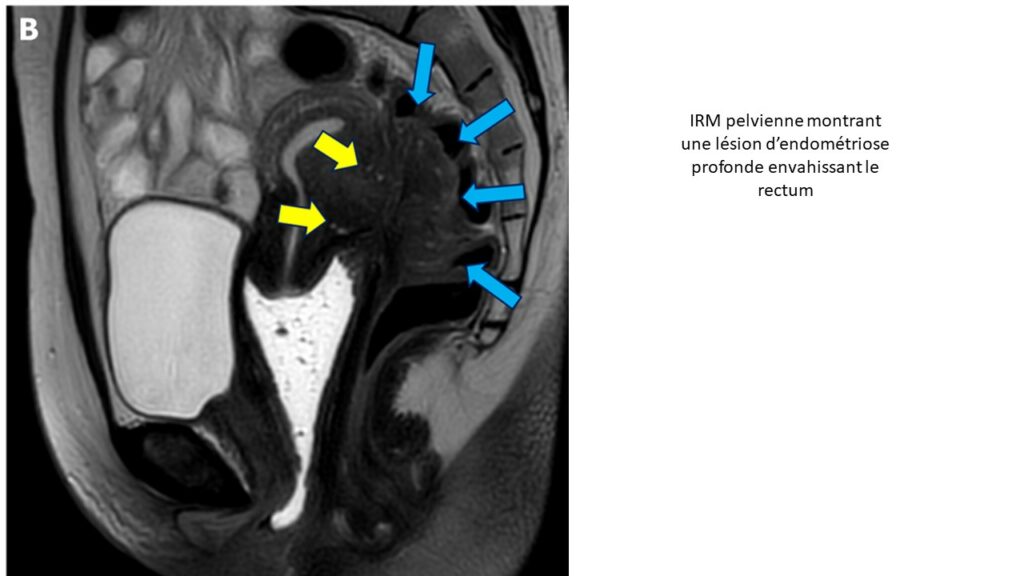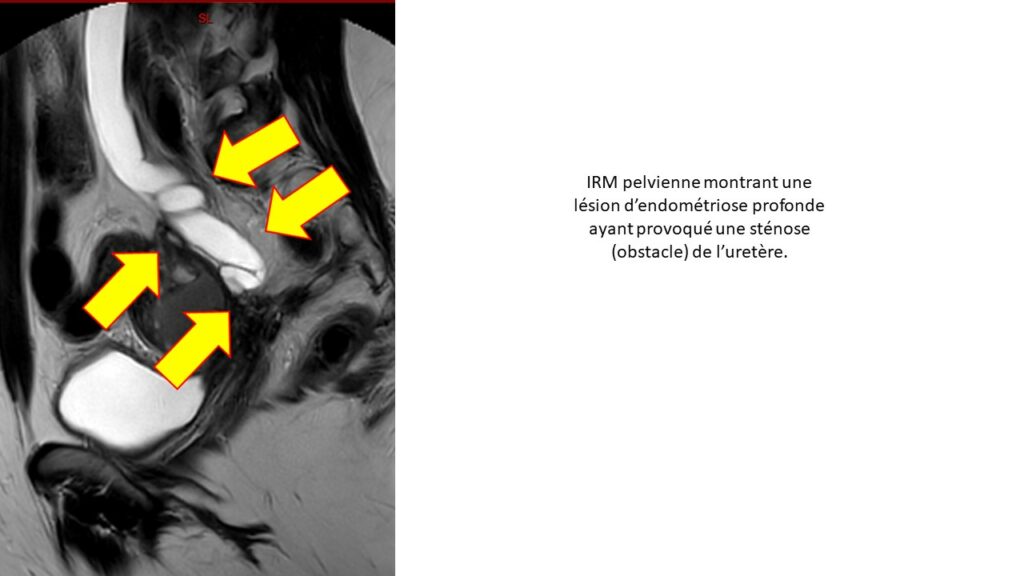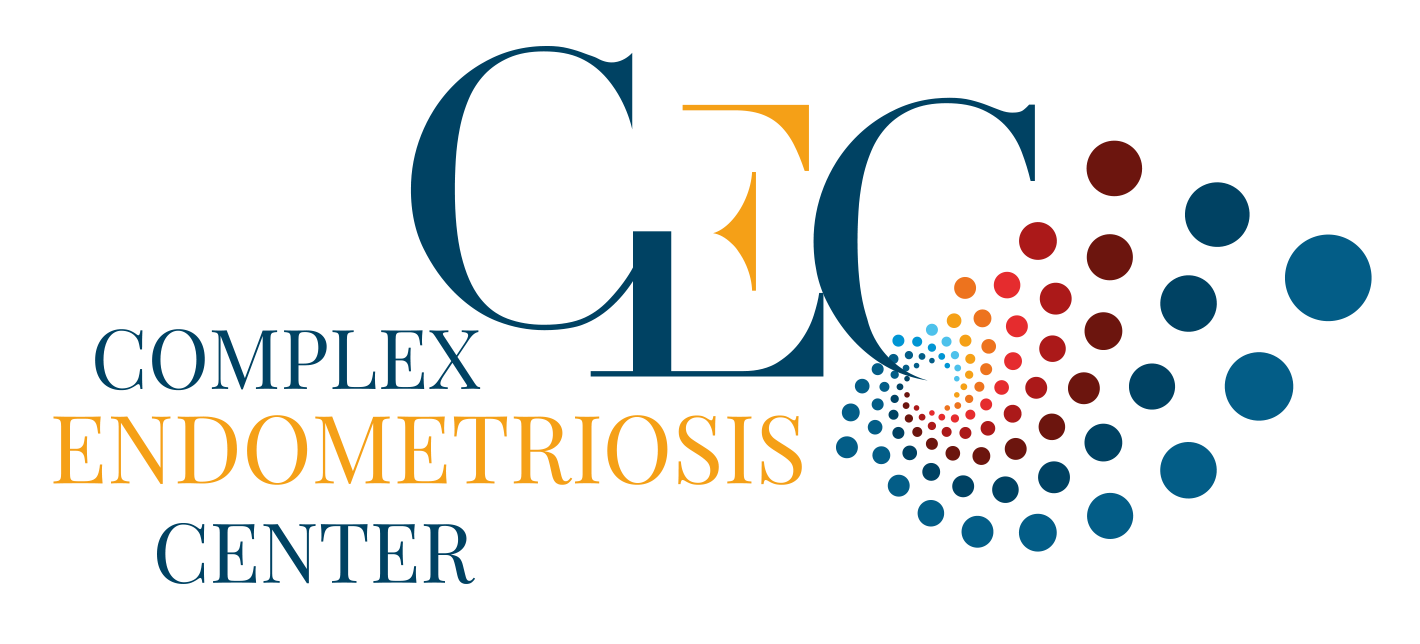What is deep endometriosis or digestive endometriosis?
Deep endometriosis, also known asdigestive endometriosis, is a particularly aggressive form of the disease. It manifests as indurated, nodular lesions composed of smooth muscle infiltrated by endometrial glands and stroma. These features make it the most difficult variant of endometriosis to treat.
What distinguishes deep endometriosis from other forms is its infiltrative behaviour. Rather than remaining localized, it has the capacity to invade organs located in the abdomino-pelvic region.
Among the organs likely to be affected are the vagina, the cervix, the uterus itself, but also the bladder.Digestive endometriosis refers to the invasion of deep endometriosis into the digestive tract, affecting areas such as the rectum, sigmoid, cecum, vermiform appendix and small intestine.
The invasiveness and difficulty of treatment of thiscomplex form ofendometriosis lies in the fact that it can target pelvic nerves, accentuating the pain felt by patients. It is therefore essential to recognize and treat deep or digestive endometriosis, given its potential to affect various pelvic organs and structures.


What are the symptoms of deep endometriosis?
Deep endometriosis is a particularly invasive form of endometriosis, affecting tissues deep beneath the surface of the peritoneum. Depending on the organ(s) it secondarily invades, this condition can be responsible for a panoply of symptoms, greatly impacting patients' quality of life.
- Pelvic pain: This pain may occur during or outside the menstrual cycle, meaning that it is not exclusively related to the menstrual period.
- Painful intercourse: Some women experience debilitating pain during or after intercourse.
- Pain on urination or defecation: When endometriosis affects the lining of the bladder or rectum, it can cause pain when trying to urinate or defecate.
- Digestive disorders: if the intestinal cavity is invaded, affected women suffer from alternating constipation and diarrhea, sometimes accompanied by bloating.
- Chronic fatigue: The recurrent symptoms of deep endometriosis, such as recurrent pain and bleeding, can lead to a constant state of fatigue.
It's crucial to understand that the intensity and frequency of these symptoms vary from woman to woman. Some may present with severe symptoms even in the absence of significant lesions, while others may present with significant lesions but milder symptoms.
In all cases, the impact of deep endometriosis is considerable, hampering daily activities and altering patients' quality of life. This is why early diagnosis and appropriate treatment are essential to alleviate these symptoms and improve the well-being of women affected by this pathology.
What about the diagnosis of this type of complex endometriosis?
The diagnosis of deep endometriosis requires a meticulous and exhaustive approach. In the first instance, a thorough clinical examination is essential, and should be carried out by an experienced practitioner familiar with the specific symptomatology of this disease.
Abdominal ultrasound is generally the first examination performed, as it is non-invasive and can visualize certain lesions, particularly those of an inflammatory nature. However, pelvic imaging remains the gold standard for diagnosing deep endometriosis. MRI offers a detailed image of the pelvic organs, and can reveal lesions even deep beneath the surface of the peritoneum.
Depending on the patient's history and symptoms, further investigations may be required. If it is suspected that the disease has invaded other organs such as the rectum, sigmoid, bladder, ureters or even the diaphragm, specific assessments will be required. In some cases, a biopsy may be recommended to obtain histological confirmation of the disease.
The purpose of this diagnostic approach is twofold: firstly, to determine the extent and severity of the disease, and secondly, to provide valuable information before considering medical treatment or surgery.
By understanding precisely where and how deep endometriosis affects a patient, our doctors can formulate a tailored symptomatic treatment plan.
Deep endometriosis: the importance of turning to real specialists!
Deep endometriosis is a complex and debilitating condition for many women. When it comes to seeking medical support, it's crucial to turn to genuine, dedicated experts.
In this respect, the Complex Endometriosis Centre stands out for its team of specialists renowned worldwide for their expertise in the field.
The CEC is more than just a medical center: we are a movement, a mission. Our specialists are ardent advocates of women's right to be free from pain, not only to care for them but also to give them the opportunity to procreate.
Far from the image of some self-proclaimed endometriosis experts who are simply trying to cash in on a trend, our experts are genuinely committed.
Our revolt against these opportunists is palpable, because we understand all too well the real issues and challenges facing women with endometriosis, and in particular its profound form.
The introduction of CO2 laser technology by the Complex Endometriosis Center has proved to be a revolution in the field of laparoscopic surgery. This technological advance has enabled us to operate on several thousand women suffering from deep endometriosis with convincing results.
Thanks to this innovative approach, combined with our unwavering dedication, we continue to change the lives of many women, offering them hope, relief and the potential joy of motherhood. When you turn to our specialized practitioners and surgeons, you're choosing quality, integrity and innovation for optimal management in the care protocol for deep endometriosis.
